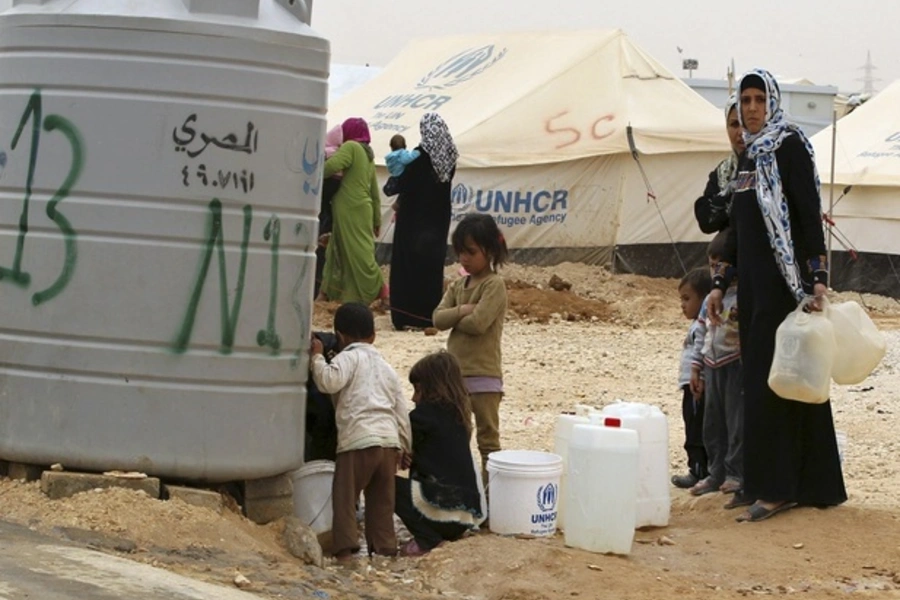How Trump’s Executive Order Harms Women Refugees

More on:
In the midst of the uproar over President Trump’s executive order (EO), entitled “Protecting the Nation From Foreign Terrorist Entry Into the United States,” an important element missing from the debate is the disproportionate impact it will have on women. While the federal government provides limited data on women refugees, the State Department reported that in fiscal year 2016, over 72 percent of refugees resettled in the U.S. were women and children. The executive order, signed on January 27, 2017, suspends the Refugee Admissions Program for 120 days and bans all citizens from seven “countries of concern”—Iraq, Iran, Libya, Somalia, Sudan, Syria, and Yemen—from entering the United States for ninety days. The order also indefinitely suspends entry of Syrian refugees into the United States. Other observers have persuasively outlined the legal and ethical limitations of the EO and lawyers have successfully challenged aspects of the order in court.
Lost in the kerfuffle is the particularly adverse impact of the ban on women. A recently released Women’s Refugee Commission report notes that preventing refugee resettlement punishes women who are fleeing persecution and violence from some of the worst conflicts in the world, including in Syria and Iraq, where, as I’ve written before, the self-proclaimed Islamic State uses rape and other forms of sexual violence against women as weapons of war. For many women refugees, who have already gone through the refugee vetting process, the executive order means they will be forced to remain in refugee or temporary settlement camps, which present a host of dangers in addition to the ones they have already faced. Women and girls in refugee camps are at heightened risk of both sexual and physical violence, exploitation, sexual harassment, trafficking, and forced marriage.
Since the United States is the largest refugee resettlement country in the world, the executive order also has destabilizing effects globally, as it affects not just the U.S. resettlement infrastructure, but the refugee resettlement landscape worldwide. The United States has for decades run an extensive refugee resettlement program—also known as third-country resettlement—to provide people fleeing humanitarian disaster and persecution with legal and physical protections, and the same rights and privileges enjoyed by all U.S. citizens. The strict parameters that regulate resettlement programs around the world mean that only 1 percent of refugees have the opportunity to find permanent refuge in a third country—the vast majority of the world’s 65.3 million people displaced from their homes reside in crowded urban centers and sprawling refugee camps in host countries like Jordan, Turkey, and Kenya. In most of these countries, temporary protection systems prohibit refugees from accessing more permanent forms of residency or citizenship—this limits access to education, employment, and healthcare, which has particularly detrimental effects on female refugees. This is one reason why the U.S. resettlement program has historically accepted such a high proportion of women and children.
Additionally, U.S. actions may create a precedent that other nations follow. If other countries follow suit in closing the door to refugees, women refugees who are already at risk may well become even more vulnerable. And as the Women’s Refugee Commission report points out, “The EO forces refugees, asylum seekers and women and children desperately seeking safety and protection into the shadows, making them extremely vulnerable to traffickers, smugglers, and criminal organizations.”
For decades, U.S. administrations on both sides of the aisle have ensured that the United States act as a global leader in refugee protection. The negative impact of Trump’s EO has been staggering. As the government concedes that already 60,000 visas have been revoked—and the ban has only been in place one week. A policy that fuels uncertainty and indefinitely bans the entry of the world’s most vulnerable refugees, including women and children fleeing war-torn Syria, is counter to these values.
More on:
 Online Store
Online Store